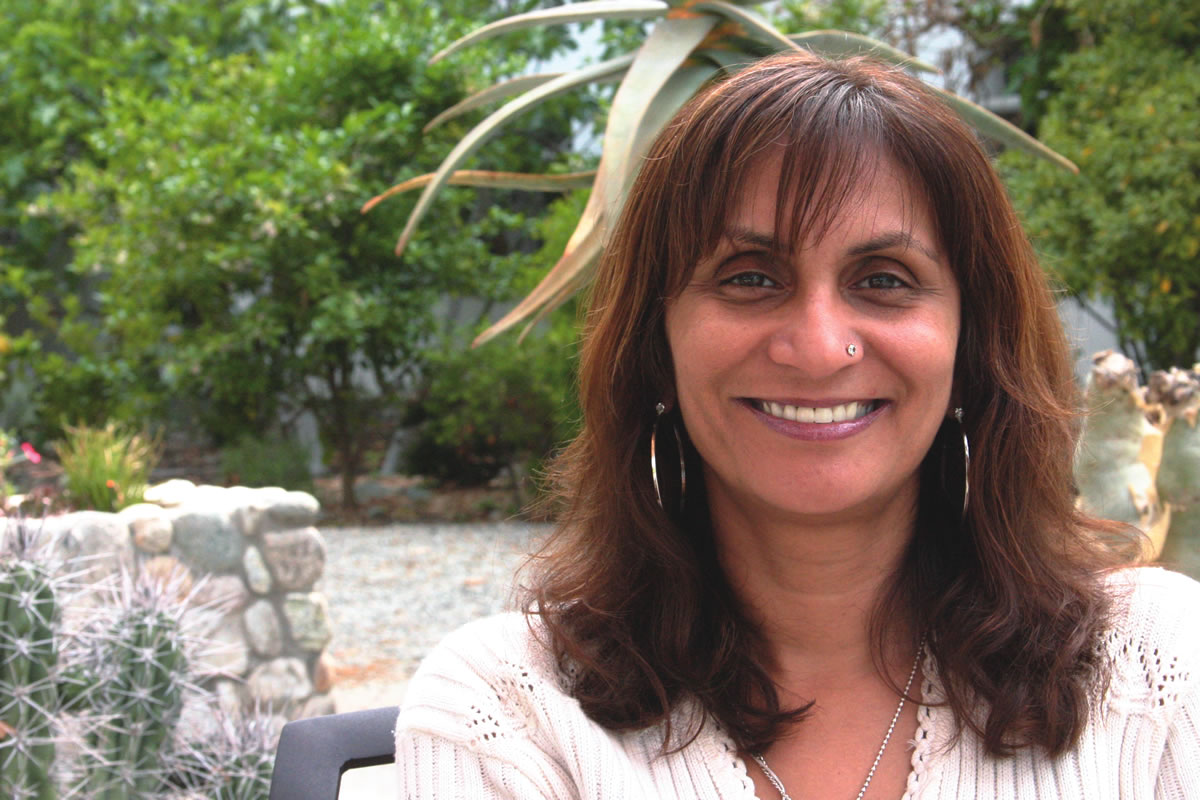
From the very beginning, Professor Dipannita Basu brought her trademark trans-Atlantic and trans-disciplinary perspective to Pitzer. Born in India and raised in England, Basu spoke about diaspora, African-American entrepreneurs and hip-hop during her first lecture on campus—a job talk for an opening in the sociology field group.
“I remember being wowed by her work on ethnic entrepreneurship, rap music and her trans-Atlantic understanding of race and space,” Pitzer Professor of Psychology Mita Banerjee says. “And, of course, her accent.”
Banerjee wasn’t the only one who was wowed. Basu joined Pitzer’s faculty in 1995 and, as a professor of sociology and black studies (now Africana studies), she began transforming students’ understanding of everything from urbanization to the societal catalysts for contemporary music.
One of those students was Jamilah King ’07, a writer and editor who focuses on race, gender and sexuality. The winner of Pitzer’s 2015 Young Alumni Achievement Award, King counts Basu among the most influential professors she encountered at Pitzer.
“When it comes to the discipline of black studies, she provided valuable global context,” King said. “That global context was instrumental in getting me to think about race and culture in a much broader way.”
Basu often co-taught with professors from across Pitzer’s spectrum of field groups and her courses transcended traditional borders between academic disciplines. She created classes never before seen in the College’s course catalog: The Black Atlantic; Sociology of Popular Music; Class, Caste and Colonialism in Film and Documentaries.
“I felt so lucky to teach what I wanted,” Basu says. “I loved teaching at Pitzer.”
Basu connected classrooms to communities both near and far. She helped develop Pitzer’s partnership with a juvenile probation camp in La Verne and pioneered one of the College’s first global-local courses, taking a group of first-year students to Kalimpong, India, in 2007. She is also the co-editor of the book The Vinyl Ain’t Final: Hip-Hop and the Globalization of Black Popular Culture and the author of numerous articles about ethnicity, gender and entrepreneurship.
Although she has dedicated her professional life to higher education, Basu didn’t always plan to be a professor—she did her undergraduate degree in pharmacology, and then earned her MBA and PhD in ethnic entrepreneurship. She discovered her love of teaching when she was doing postdoctoral work at UCLA. Now, when asked what she will miss about teaching, she says, “Everything. Really, everything.”
Basu’s teaching career was cut short in 2012. That summer, she was on London’s Underground when she suffered a massive stroke and seizure triggered by a malignant brain tumor. She spent 104 days in the hospital, underwent three operations and couldn’t speak for a month.
“I’m supposed to be dead,” she says. “But I’m not.”
Determined is one of the terms—along with forthright, funny and fun—colleagues use to describe Basu. Over the past four years, she regained her ability to walk and talk. Then she set her sights on returning to the classroom and, in fall 2014, she did, co-teaching a First-Year Seminar called Africana Film: UK to USA, with Professor Emeritus Halford Fairchild.
In the 20 years since her first talk at Pitzer, Basu has expanded the College’s curriculum and undergraduates’ worldview, Fairchild says.
“Dipa’s unique trans-Atlantic perspective provided a reminder to our students that the world is bigger than the United States,” he says. “She challenged students to make their analyses apply to local and international situations, and inspired their sense of global citizenship.”